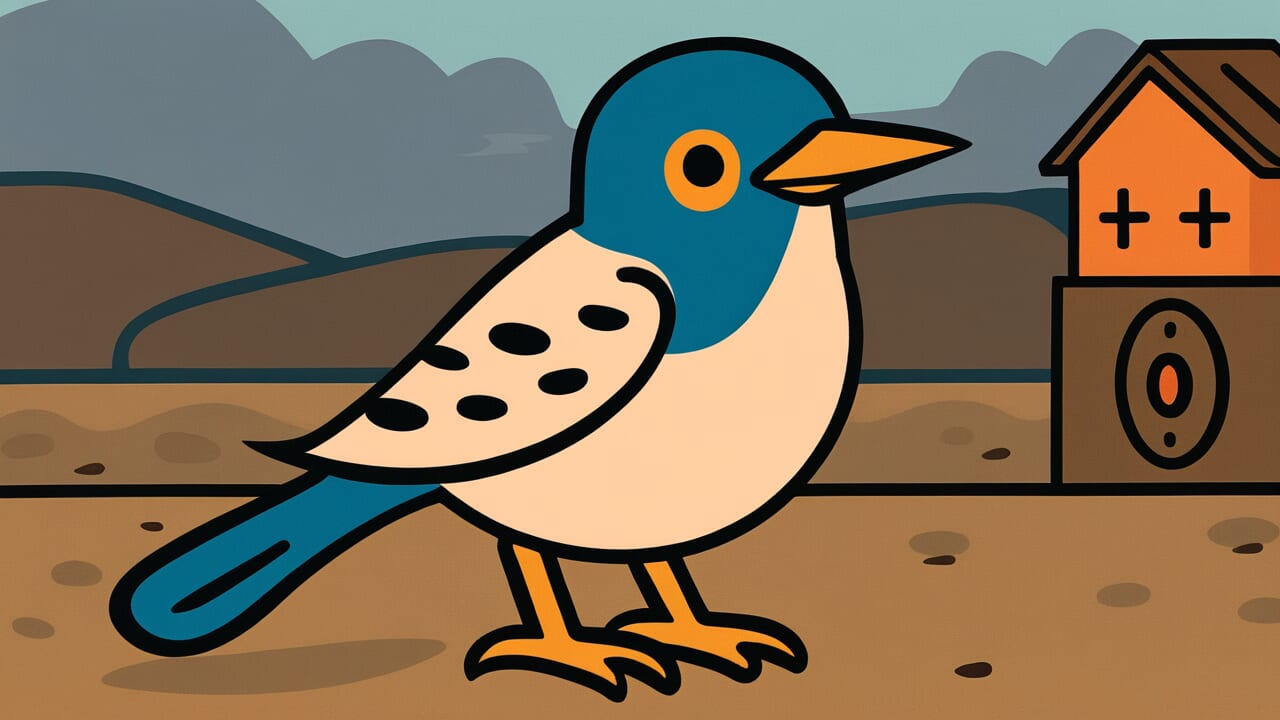How to Read “I’ll wait until the cuckoo sings”
Naku made matō hototogisu
Meaning of “I’ll wait until the cuckoo sings”
This proverb teaches the importance of waiting patiently without rushing. Wait until someone’s feelings are ready or until the right time comes naturally.
Don’t try to force things or push situations to change. Instead, trust the natural flow and wait for others to move on their own.
In relationships and work, we often want immediate results. But people need time to prepare and sort out their feelings. Respecting this builds trust.
Use this proverb when you want to warn against hasty actions. It reminds us to take a long-term view. Modern society pushes for instant results.
But sometimes waiting is the wisest choice to get what truly matters.
Origin and Etymology
This proverb comes from verses about three famous warlords from Japan’s Warring States period. Each verse shows their different personalities through how they’d handle a cuckoo that won’t sing.
Oda Nobunaga’s verse says “If the cuckoo won’t sing, kill it.” Toyotomi Hideyoshi’s says “If the cuckoo won’t sing, I’ll make it sing.” Tokugawa Ieyasu’s says “If the cuckoo won’t sing, I’ll wait until it does.”
These verses weren’t actually written by the warlords themselves. Later generations created them to explain each leader’s character and ruling style in an easy way.
Ieyasu endured many years before unifying Japan. He eventually founded the Edo shogunate, which lasted over 260 years. His patience and strategic waiting are symbolized in this verse.
The hototogisu has been loved by Japanese people since ancient times. Hearing its beautiful song was a symbol of early summer. But the bird is unpredictable and won’t sing on command.
This quality made it perfect for teaching wisdom about dealing with things and people we cannot control.
Interesting Facts
Tokugawa Ieyasu actually took a very long time to gain power. He served two brilliant warlords, Nobunaga and Hideyoshi, while hiding his own ambitions. He kept waiting for the right moment.
He won the Battle of Sekigahara at age 58. He founded the Edo shogunate at 61. This was quite old for that era. His life truly embodied “waiting until the cuckoo sings.”
The hototogisu practices brood parasitism. It lays eggs in other birds’ nests, like the warbler, and lets them raise its young.
This somewhat cunning survival strategy resembles Ieyasu’s patient and calculating nature. This may be why the bird was chosen for this proverb.
Usage Examples
- I decided to trust in the new employee’s growth and watch over them with the spirit of “I’ll wait until the cuckoo sings”
- Until she opens her heart, I keep telling myself “I’ll wait until the cuckoo sings”
Universal Wisdom
Humans have two conflicting desires. One is the craving for immediate results. The other is the intuitive understanding that truly valuable things need time to develop.
This proverb has been passed down for centuries. People know from experience how difficult yet important it is to choose the wisdom of patience.
Waiting seems like doing nothing. But actually, waiting requires advanced mental ability. You must endure anxiety, suppress impatience, and keep believing.
Human instinct pushes for immediate action. But intelligence teaches that sometimes waiting is the best action.
This proverb answers the question of what true strength means in life. Real strength isn’t forcing your way through. It’s having the insight to recognize the right timing.
It’s having the patience to endure until that time comes. This ultimately brings greater results. If you dig up a seed because it doesn’t sprout immediately, it will never bloom.
Understanding nature’s way and humbly following it is proof of human maturity.
When AI Hears This
The waiting strategy is fascinating because it costs nothing yet has power to change the opponent’s behavior. In game theory, forcing strategies consume energy continuously. The longer time passes, the more your gains decrease.
On the other hand, choosing to wait costs nothing. You can preserve your resources until the opponent moves voluntarily.
Information asymmetry is especially noteworthy here. The cuckoo knows “when it will want to sing,” but the waiting side doesn’t. Normally, the side without information is disadvantaged.
But here a reversal happens. When the waiting side shows they “can wait indefinitely,” psychological pressure builds on the cuckoo. It creates a feeling that “eventually I must sing.”
This is a cooperative game structure, different from the prisoner’s dilemma. It naturally converges to a solution where both sides avoid loss.
Even more interesting is how this strategy preserves the opponent’s self-respect. Being forced to sing versus singing voluntarily creates completely different psychological costs for the cuckoo.
The waiting strategy gives the opponent a sense of “I decided this myself.” This keeps the relationship positive afterward. In other words, viewed as a repeated game rather than one-time, the waiting strategy also generates the long-term benefit of trust.
Lessons for Today
Modern society is dominated by a culture demanding instant responses and quick results. We’re expected to reply to messages immediately and show solutions to problems right away.
But this proverb teaches us there’s another option. It’s the active choice to wait intentionally.
When you wish for someone’s growth, you might feel the urge to intervene immediately. When a subordinate struggles, when a child seems headed for failure, when a friend appears to take the wrong path.
But giving that person time to realize things themselves and make their own decisions leads to real growth.
Waiting isn’t giving up. It’s believing. Believing in the other person’s potential, believing in the power of time, believing in the natural flow of things.
If there’s something in your life where you feel you must have an answer right now, try pausing for a moment. Perhaps the best action is to wait a little.
During that waiting time, new possibilities are growing.



Comments